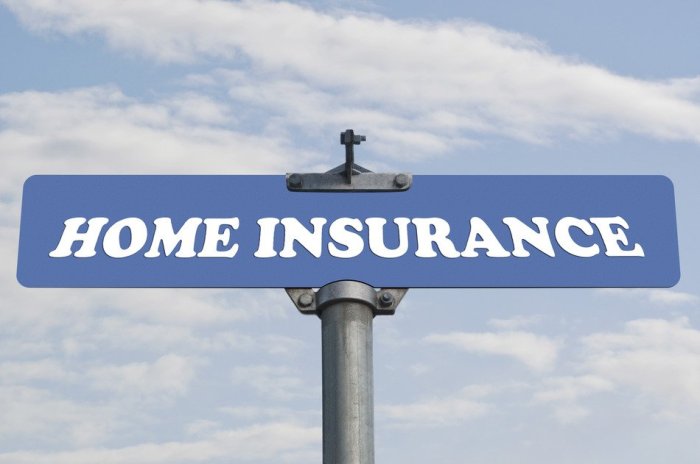What are the best homeowners insurance companies for new homeowners? Buying a home is a huge step, and protecting your investment with the right insurance is crucial. Navigating the world of homeowners insurance can be overwhelming, especially for first-time buyers.
This guide breaks down the key things you need to know about homeowners insurance, from understanding basic coverage to finding the best companies for your needs.
This guide covers everything from understanding the basics of homeowners insurance, like coverage components and how premiums are calculated, to factors that influence costs, such as location, home features, and your credit score. We’ll also delve into top insurance companies known for their services to new homeowners, compare their strengths and weaknesses, and offer tips for choosing the right policy for you.
Factors Influencing Homeowners Insurance Costs: What Are The Best Homeowners Insurance Companies For New Homeowners

Homeowners insurance premiums are calculated based on various factors that assess the risk of your home being damaged or destroyed. Understanding these factors can help you make informed decisions to potentially lower your premiums.
Location
The location of your home significantly impacts your homeowners insurance costs. Insurance companies consider factors like natural disaster risk and crime rates to determine premiums.
- Natural Disaster Risk:Homes located in areas prone to hurricanes, earthquakes, wildfires, or floods are generally considered higher risk and will have higher premiums. For example, a home in coastal Florida will likely have higher premiums than a home in the Midwest due to the higher risk of hurricanes.
- Crime Rates:Areas with higher crime rates have a greater chance of burglaries, vandalism, or theft, which increases the risk for insurance companies. Consequently, homes in high-crime areas often have higher premiums.
Home Features, What are the best homeowners insurance companies for new homeowners
Your home’s characteristics play a crucial role in determining your insurance costs. Factors like age, size, and construction materials are considered.
- Age:Older homes, especially those with outdated electrical systems or plumbing, are generally considered higher risk due to the potential for wear and tear. Newer homes with modern construction methods and materials often have lower premiums.
- Size:Larger homes generally require more coverage and are considered more expensive to rebuild, leading to higher premiums.
- Construction Materials:Homes built with fire-resistant materials, such as brick or stone, are often considered lower risk and have lower premiums compared to homes constructed with wood.
Credit Score
Your credit score can influence your homeowners insurance rates. Insurance companies use credit scores as an indicator of your financial responsibility, believing that individuals with good credit scores are more likely to pay their premiums on time.
A good credit score can lead to lower insurance premiums, while a poor credit score can result in higher rates.
Understanding Coverage Options and Add-ons

When you’re shopping for homeowners insurance, it’s important to understand the different coverage options available and how they can protect you. Here’s a breakdown of common coverage options and add-ons that you should consider.
Common Coverage Options
Homeowners insurance policies typically include three main types of coverage: dwelling coverage, personal property coverage, and liability coverage.* Dwelling Coverage:This covers the physical structure of your home, including the attached garage, decks, and other permanent fixtures. The amount of dwelling coverage you need will depend on the replacement cost of your home.
Personal Property Coverage
This protects your belongings inside your home, such as furniture, clothing, electronics, and appliances. You can choose to have this coverage based on the actual cash value (ACV) or replacement cost value (RCV). ACV coverage pays you the depreciated value of your belongings, while RCV coverage pays you the full cost to replace them with new items.
Liability Coverage
This protects you from financial losses if someone is injured on your property or if you accidentally damage someone else’s property. Liability coverage also covers legal defense costs if you are sued.
Benefits of Additional Coverage Options
While the standard coverage options are important, you may also want to consider additional coverage options to provide more comprehensive protection. Here are some examples:* Flood Insurance:This is a separate policy that covers damage caused by flooding, which is not typically covered by standard homeowners insurance.
Flood insurance is essential if you live in an area that is prone to flooding.
Earthquake Insurance
This coverage protects your home from damage caused by earthquakes, which is also typically not covered by standard homeowners insurance. Earthquake insurance is essential if you live in an area that is prone to earthquakes.
Identity Theft Protection
This coverage helps you recover from the financial and emotional costs of identity theft. It can provide you with credit monitoring, identity theft restoration services, and legal assistance.
Add-ons
Here are some additional coverage options that you may want to consider:
- Scheduled Personal Property:This coverage provides additional protection for specific high-value items, such as jewelry, artwork, or antiques. It’s a good idea to schedule these items if they are worth more than your policy’s standard limit for personal property coverage.
- Loss of Use Coverage:This coverage helps you pay for temporary living expenses if your home is uninhabitable due to a covered event, such as a fire or a storm.
- Personal Injury Coverage:This coverage protects you from claims of slander, libel, or invasion of privacy.
- Ordinance or Law Coverage:This coverage helps you pay for the cost of rebuilding your home to meet current building codes, even if the cost exceeds your dwelling coverage limit.
- Water Backup Coverage:This coverage protects you from damage caused by a sewer backup or a water heater failure.
- Equipment Breakdown Coverage:This coverage protects you from damage caused by the failure of appliances or other equipment, such as a refrigerator or a furnace.
Ultimate Conclusion

Choosing the right homeowners insurance is a key part of protecting your investment and ensuring peace of mind. By understanding your needs, comparing quotes, and carefully reviewing coverage options, you can find the best policy for your new home.
Remember, it’s always a good idea to speak with an insurance broker or agent to get personalized advice and make sure you’re fully covered.
Expert Answers
What is a deductible?
A deductible is the amount of money you pay out of pocket before your insurance company starts covering your claim. The higher your deductible, the lower your premium will generally be.
How often should I review my homeowners insurance policy?
It’s a good idea to review your policy at least annually, or whenever you make significant changes to your home, such as renovations or additions.
What are some common discounts I can get on homeowners insurance?
Some common discounts include bundling your homeowners and auto insurance, having a security system, and having a good credit score.
What if I need to file a claim?
Contact your insurance company as soon as possible after an incident. Be prepared to provide details about the event, any damages, and any relevant documentation.
